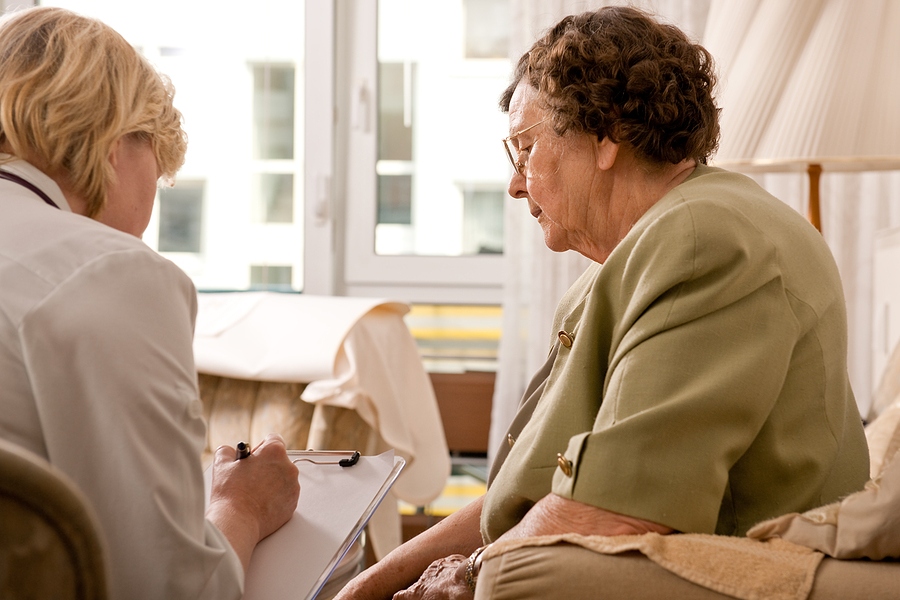
If you or a senior loved one has suffered abuse in a nursing home, contact us to hold the perpetrators accountable.
Oftentimes, nursing home residents leave their beloved family and familiarity of their homes when they move into a facility. It’s a major life transition. In exchange, they should get nothing short of top notch care. Sadly, the very places that are supposed to look after our loved ones can harm them in unimaginable ways.
Nursing home abuse is extremely traumatizing, both emotionally and physically. Instead of enjoying their golden years, abused residents cope with injuries that are not easy to manage. They may feel like they have nowhere to turn to and no means to hold the nursing home accountable.
The nursing home abuse attorneys of Sand Law work on a contingency basis – you don’t have to worry about paying unless the outcome is successful. We will work restlessly on your loved one’s case to get the best compensation available.
How Common is Nursing Home Abuse?
Close to 17% of people 60 and older are abused in some way within their communities. By some estimates, elder abuse in long-term care facilities is as widespread as child abuse.
Types of Abuse in Nursing Homes
Physical Abuse. A facility may blame physical injuries on another health condition to cover up abuse. Abusers may also harm a resident in a place that is generally covered by clothes.
Sexual Abuse. Any resident can be taken advantage of. However, 90% of rape victims are women. Since female residents are generally smaller, they are easier to physically overpower. Molestation and harassment are other common forms of sexual abuse.
Emotional Abuse. Emotional abuse may include blackmail, violent threats, name calling, and other forms of humiliation.
Warning Signs to Look Out For
Warning signs of nursing home abuse include:
- Poor hygiene. Dirty clothes and linen, unkempt hair, and foul odors are all indicators that your loved one isn’t being looked after.
- Weight changes. Both weight gain and weight loss are signs that a facility may not be meeting a resident’s dietary needs. Weight fluctuations can also point to untreated health issues.
- Visible injuries. Bruises, cuts, and welts may seem minor. However, they are always worth documenting as a precaution. When these injuries heal at different rates, it suggests repeated abuse and neglect.
- Changes in demeanor. Your loved one may start to seem withdrawn, irritable, or jumpy. These reactions to abuse can be particularly noticeable when the perpetrating staff members are close by.
The Nursing Home Has a Duty of Care
Nursing homes have a duty of care to their residents. In other words, they have to take reasonable steps to make sure their residents are safe. Some of the reasonable measures are maintaining a capable staff, keeping the environment sanitary, and administering medical care in a timely manner. Minnesota nursing home residents’ rights are protected under federal and state laws.
Is the Nursing Home Liable for the Abuse of my Loved One?
Facilities are often liable in nursing home abuse cases. They are bound to various state and federal regulations. Some nursing homes fall short. Minnesota requires background checks for people who come into contact with residents. This doesn’t just apply to caregivers like nurses, aides, and doctors. Even workers like volunteers and vendors need to undergo these background checks. A nursing home that doesn’t utilize background checks results is negligent. If an abuser is hired because of this, both the abuser and the nursing home can be held liable. An attorney who suspects negligent hiring practices can work on uncovering the nursing home’s records to show that the facility is at-fault.
Staffing minimums are another rigid regulation that nursing homes have to follow. For instance, facilities must ensure that a registered nurse is always available, and they must provide sufficient additional staff to meet all of the residents’ needs. An understaffed facility leaves dependent residents to fend for themselves. Without the proper assistance, these residents can wind up in accidents like slip and falls which can lead to broken bones and fractures, brain injuries, and wrongful deaths. In a nursing home abuse case, an experienced attorney will also evaluate timesheets and other employee records to see if a facility cut any corners.
What Kind of Compensation Can My Loved One Receive?
If your loved one has suffered physical injuries, he or she can recover medical expenses. The nursing home’s insurance company will try to get away with paying the least amount possible. For example, it’s possible they’ll only offer enough to cover immediate medical costs. Your loved one’s injuries may require ongoing treatment for years to come. An attorney who is familiar with nursing home abuse cases will calculate the true value of the claim so that your loved one won’t have to settle for less.
Compensation for pain and suffering may also be available to your loved one. This means the physical pain caused by the injuries as well as mental anguish like grief, depression, anxiety, and PTSD. Giving your own testimony about your loved one’s emotional state to his or her lawyer can help to show the extent of the damages.
An abusive environment often forces residents to change homes unexpectedly. That is why the cost of relocation is another recoverable expense. Similarly, your loved one may be able to recuperate fees paid to the nursing home. After all, a year in a Minnesota nursing home can cost over $90,000.

Contact a Minnesota Nursing Home Abuse Attorney
If your loved one has been abused in a nursing home or you suspect abuse, speak to an attorney of Sand Law as soon as possible. Our attorneys are passionate about protecting our clients’ best interests, especially when they’re in vulnerable situations. We will carefully investigate your loved one’s case and seek maximum compensation from the at-fault parties. Our no-pressure initial case evaluations are always free. Call us at 651-291-7263 or contact us online or through our live chat feature.

